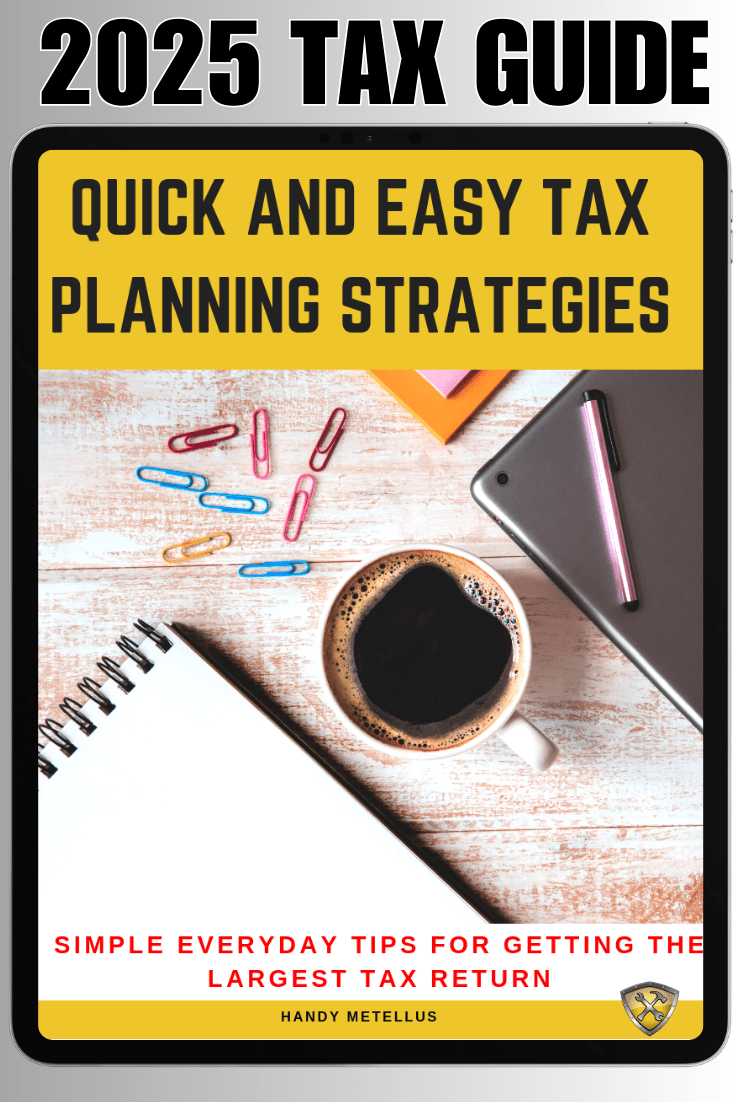Do you know how to choose the best tax filing status?
It is very important to select the correct filing status when filing your individual tax return. Many tax credits, deductions, and the amount of taxes paid are dependent upon the filing status selected.
THIS POST MAY CONTAIN AFFILIATE LINKS. PLEASE READ MY DISCLOSURE FOR MORE INFO. This means if you click on any of the links, I’ll receive a small commission.
What Filing Status Should I Use?
At times, more than one filing status may apply to you. In this case you should work with your tax advisor to figure out which status is best for you.
The 5 Filing Statuses:
- Single
- Married Filing Jointly
- Married Filing Separately
- Head of Household
- Qualifying Widow(er) with dependent child

What is my marital status?
Your filing status depends on your marital status. You are considered married for the entire year if on the last day of the year, one of the following is true:
- Legally married and living together as a married couple.
- You are living together in a common-law marriage, recognized by the state of resident or state where the common-law marriage began.
- Married and living apart, but not legally separated under the decree of divorce or separate maintenance.
- You are separated under interlocutory (but not final) decree of divorce.
For federal tax purposes individuals of the same sex are considered married if they were legally married in a domestic or foreign jurisdiction which authorizes the marriage of two individuals of the same sex.
Note: The term “spouse” refers to a person whether of the opposite sex or same-sex, who is legally married to you.
If your spouse dies during the tax year, then you are considered married for the entire year (for filing status purposes).
More Tax Savings: File at Ease at Home with Turbo Tax
You are considered unmarried for the entire year, if on the last day of the year you are unmarried or legally separated from your spouse under a decree of divorce or separate maintenance degree.
Note: Your state law governs whether you are married or legally separated under divorce or separate maintenance degree.
What if I’m divorced?
If you are divorced under a final decree by the last day of the year, you are considered unmarried for the entire year.
What if my marriage is annulled?
If you attained an annulment, which states that the marriage never existed, you are considered unmarried.
In this case, you might be required to file an amendment return claiming single or head of household. This would be for all the years affected by the annulment.
When can I file as Single?
You must file single if you are considered unmarried and do not qualify for any other filing status.
Example: Zachary is divorced, has no children or any other dependents. He lives alone, supports himself, and pays all the expense of his household. Zachary must file as single because he does not qualify for any other filing status.
Married Filing Jointly (MFJ)
When can I file as Married Filing Jointly?
You can file as married filing jointly if you are considered married and your spouse agrees to file a joint return.
What are we responsible for?
Both you and your spouse can be held responsible jointly and individually for the back taxes, interest or penalties due on your joint return. One spouse can be held responsible for all the taxes due, even if all the income is earned by the other spouse.
Note: Couples who file jointly must combine their income and deductions on the same return.
Both husband and wife…
- Must sign the return
- Are responsible for any taxes owed on the return
Married Filing Separately (MFS)
Can I file Married Filing Separately?
You can file as married filing separately if you desire or if you cannot agree to file a joint return with your spouse. If you decide to file separately, you and your spouse must report income and deductions on separate returns even if one spouse had no income.
Example: Ken and Mary are married and lived together the entire year; however, due to past financial issues, Mary does not want to file a joint return with Ken. They can file as Married Filing Separately since they cannot agree to file a joint return.
Head of Household (HOH)
When can I file as head of household?
The head of household filing status is often misunderstood and many people select this filing status incorrectly.
It is very important to have a detailed conversation with your tax advisor to determine if you can select the head of household filing status.
You can file as head of household if you meet all of the following requirements:
- Unmarried or considered unmarried on the last day of the year
- Paid more than half of the cost of keeping up a home for the year
- A qualifying person lived in your home for more than half of the year except for temporary absences such as illness, education, business, vacation, or military service. If the qualifying person is the dependent parent, the qualifying person does not have to live with you.
What is consider keeping up a home?
Keeping up home includes costs such as rent, mortgage interest, real estate taxes, insurance on the home, repairs, utilities, and food eaten in the home.
What is not considered keeping up a home?
Keeping up the home does not include expense for clothing, education, medical treatment, vacations, life insurance, or transportation.
Example: Jena is single and has 3 children under the age of 18. All 3 children lived with her all year and she provided all their support. Jena can file as Head of Household.
Note: If you use payments received under Temporary Assistance for Needy Families or other public assistance programs to pay part of the cost to keep up your home, it is not considered to be money paid to you.
Qualify Widow(er) with Dependent Child
When can I file as a qualifying widow(er) or with a dependent child?
A widow or widower with one or more dependent children may be able to use the qualifying widow with dependent child filing status.
This filing status is available for only two years following the year of the spouse’s death.
For example, if your spouse died during 2018 and you did not remarry, you might be able to claim the filing status for 2019 and 2020.
Let’s Wrap this Up…
I hope this article helped you gain some control of your tax plan this year. Remember not to stress out. Don’t forget to check out Tax Forms page for any additional online tax checklists and forms you may need this year.

If you want more handy tax tips, then feel free to check out my latest articles here. You can sign up to get on the waiting list if you’d like to file with me this year.
If you enjoyed this article, then you’ll love these:
- Best Rules for Claiming a Dependent on Your Tax Return
- When and How to Claim Tips on Your Tax Return
- Do I Need to File a Tax Return?
- How to Choose the Best Filing Status
- Top 12 Things You Must Know About the New Tax Law
For more money-saving tips and guides, subscribe to the weekly newsletter!
Until the next money adventure, take care!
Handy

Disclaimer Statement: All data and information provided on this site is for informational purposes only. The Handy Tax Guy makes no absolute representation of the correctness, mistakes, omissions, delays, appropriateness, or legitimacy of any information on this site. **Note: Each client circumstance will vary on a case-by-case basis**
(Original Article Date: August 3, 2017/Updated December 31, 2020)






